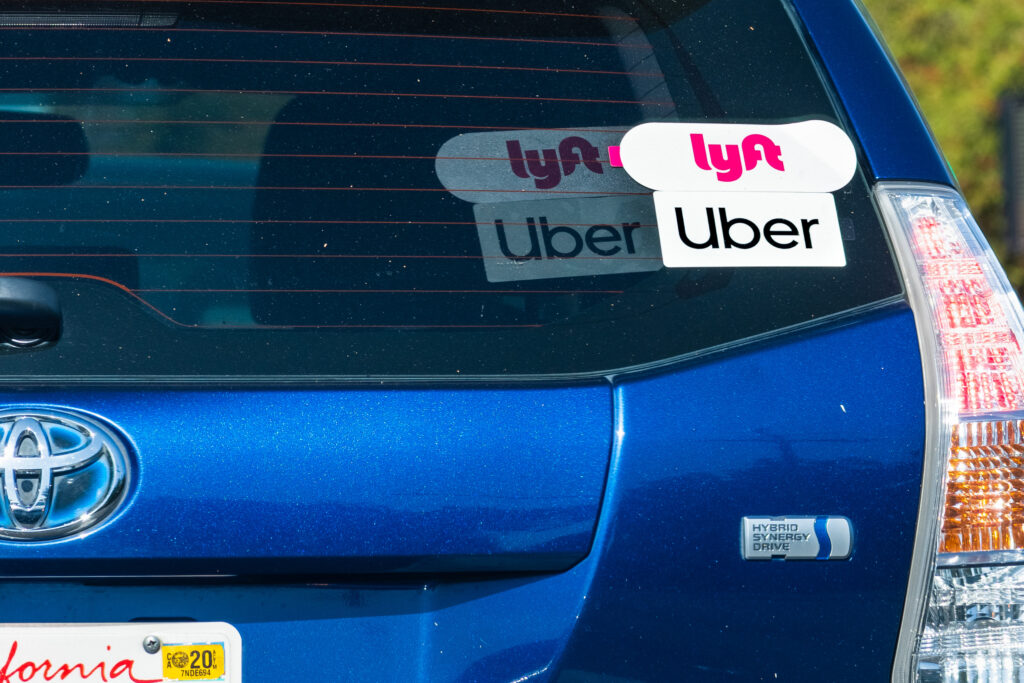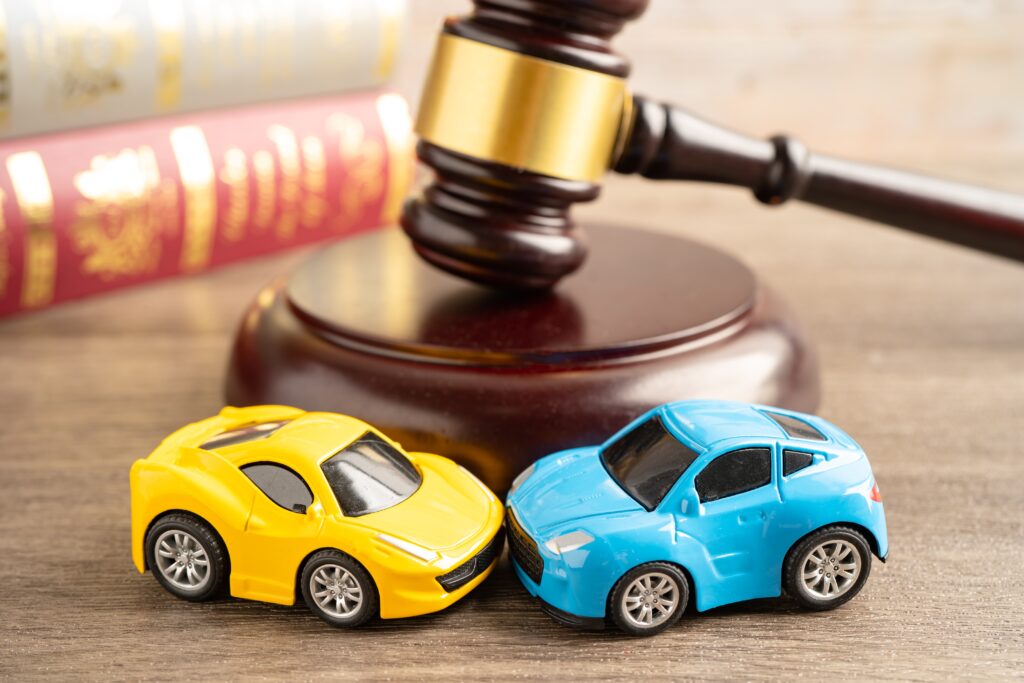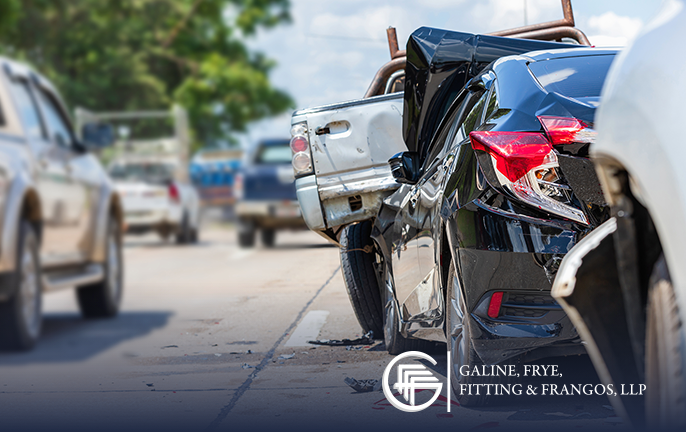Rideshare services like Uber and Lyft have revolutionized transportation, providing convenient and cost-effective travel solutions. However, as rideshare use has increased, so have accidents involving these vehicles.
While physical injuries from such accidents are often discussed, the emotional trauma suffered by victims is equally significant. Many individuals experience anxiety, depression, or post-traumatic stress disorder following a rideshare accident.
Because of the significant emotional toll a rideshare accident can have on a victim, it’s common to wonder whether it’s possible to obtain compensation for trauma. A San Mateo rideshare accident attorney with experience handling rideshare accidents can determine the types of damages you’re entitled to receive, including damages for emotional trauma, and do everything necessary to secure fair compensation on your behalf.
What is a Rideshare Accident?
A rideshare accident is any collision or traffic-related incident involving a vehicle operating under a rideshare service, such as Uber or Lyft. These accidents commonly occur while a passenger is inside the rideshare vehicle but can also involve the rideshare driver getting into an accident with another vehicle or pedestrian.
Common Causes of Rideshare Accidents

Rideshare accidents often happen for the same reasons as other vehicular collisions. However, the situation is a bit different because the vehicle is a rideshare vehicle.
Some of the most common causes of rideshare accidents include:
- Rideshare driver negligence: Rideshare drivers have a duty to drive responsibly. However, when they engage in negligent driving behaviors, such as speeding, distracted driving (i.e., texting or using GPS), fatigue, or impaired driving, they increase the chances of causing an accident.
- Poor vehicle maintenance: Rideshare drivers use personal vehicles, which they must ensure are properly maintained. Failure to maintain and repair brakes, tires, and other essential components can lead to collisions.
- Other drivers on the road: Like rideshare drivers, other drivers sharing the road should drive safely to keep themselves and others safe. Accidents often occur due to negligent or reckless driving by non-rideshare drivers.
- Adverse weather conditions: Rain, fog, and snow can reduce visibility and road traction, heightening the likelihood of a crash, especially when drivers fail to adapt their driving to weather and road conditions.
- Road hazards: Potholes, construction zones, unclear road signs, and other road hazards can make driving dangerous and result in accidents.
Determining the cause of your rideshare accident is crucial. This detail can help ensure the proper party is held accountable and you pursue compensation from the right individuals or entities.
Injuries that Regularly Result from Rideshare Accidents
Rideshare accident victims are at risk of suffering serious physical injuries. The types of injuries that result from collisions depend on the specifics of the accident, including the location of the victim and the speed at which the vehicles were traveling.
Some of the injuries rideshare accident victims often sustain include, but are not limited to:
- Whiplash and soft tissue injuries: One of the most common injuries in rideshare accidents is whiplash, which occurs when the neck jerks suddenly due to an impact. Soft tissue injuries can also include muscle sprains and ligament damage, often resulting in pain and reduced mobility.
- Broken bones: High-impact collisions can cause broken bones, particularly in the arms, legs, ribs, and facial bones. These injuries can require extensive medical treatment, including surgeries and rehabilitation.
- Traumatic brain injuries: Head injuries, including concussions and more severe traumatic brain injuries, are serious consequences of rideshare accidents. TBIs can lead to cognitive impairment, memory loss, and long-term disability.
- Spinal cord injuries: Rideshare accidents can lead to spinal cord damage, which may cause partial or complete paralysis. These catastrophic injuries require lifelong medical care and can drastically impact a victim’s quality of life.
- Internal injuries: Blunt force trauma from a rideshare accident can cause internal bleeding and organ damage, which may not be immediately apparent but can be life-threatening if untreated.
Rideshare accident injuries can affect you not only physically but also financially. Suffering injuries can mean extensive medical needs, which can be costly. Therefore, after suffering injuries in a rideshare accident, do not hesitate to seek legal help as soon as possible to begin working on your compensation claim.
Who Can Be Responsible for a Rideshare Accident?
Determining liability in a rideshare accident can be more complex than other types of auto collision cases. In some cases, multiple parties can share liability for a rideshare collision. Responsible parties can include:
- The rideshare driver: They may be held accountable if the driver was negligent or reckless.
- Rideshare companies (Uber, Lyft, etc.): In some cases, the rideshare company can share responsibility. Liability depends on whether the driver was actively using the rideshare app at the time of the accident.
- Other drivers: If another motorist caused the accident, they can be held responsible.
- Government entities: Poorly maintained and repaired roads can make a government agency partially responsible for a rideshare collision.
Figuring out who is responsible is one of the key components of a rideshare accident claim. Your attorney may need to thoroughly investigate the situation to get down to the bottom of it, helping ensure you hold the correct parties accountable for their wrongdoing and can secure full compensation.
Understanding Emotional Trauma After a Rideshare Accident

Getting into a vehicular accident can have a lasting impact on victims. The stressful event can not only affect accident victims physically, but it can have a mental and emotional toll.
Emotional trauma refers to the psychological impact a victim experiences after a distressing event like a rideshare accident. Symptoms of emotional trauma vary but can include:
- Anxiety and panic attacks
- Depression and mood swings
- Post-traumatic stress disorder (PTSD)
- Sleep disorders and nightmares
- Fear of driving or riding in a vehicle
- Emotional detachment or social withdrawal
A victim can have a negative emotional response after a collision, regardless of the severity of the accident or the aftermath of the collision. These conditions can be serious and often significantly affect a person’s daily life, relationships, and ability to work.
Victims may be unable to cope with emotional trauma on their own, no matter how much time has passed. In some cases, victims may need to seek help from a medical provider, which can include therapy and medication. It not only adds to the stress post-accident, but it can also be particularly expensive, especially if long-term treatment is required.
Can You Seek Compensation for Emotional Trauma After a Rideshare Accident?
Victims of rideshare accidents can seek compensation for their injuries, which can also include emotional trauma. Emotional distress damages fall under non-economic damages, which cover pain and suffering, mental anguish, and loss of enjoyment of life.
Because emotional trauma represents a non-tangible loss, it can be difficult to prove. Establishing the need for monetary damages requires strong evidence, such as:
- Medical records from mental health professionals
- Testimony from psychologists or psychiatrists
- Personal journals documenting emotional struggles
- Witness statements from family and friends
With the help of available evidence and documentation, a rideshare accident attorney can determine the value of your emotional trauma damages. Knowing how much your damages are worth can substantially help ensure you get adequate financial recovery.
Other Types of Compensation Available
Along with damages for emotional trauma, rideshare accident victims can secure damages for other expenses and losses, including:
- Medical treatment, like emergency care, hospital bills, medications, therapy, and rehabilitation
- Future medical costs if long-term treatments and therapy are necessary
- Lost earnings for income lost due to the inability to work
- Diminished earning potential, should the accident and injuries affect a victim’s ability to work and earn a living
- Property damage to cover repairs or replacement of damaged personal property
The value of these damages depends on several factors, including the severity of injuries and the total cost of medical treatment. A rideshare accident lawyer can review the specifics of your case to properly calculate your damages and ensure you receive the financial recovery you deserve.
How to Seek Compensation For Emotional Trauma and Other Damages After a Rideshare Accident
After a rideshare accident, there are multiple ways to seek compensation for your damages. Usually, victims can file an insurance claim through the at-fault party’s insurer. In some cases, filing a personal injury claim may be necessary.
Filing an Insurance Claim
If the party at fault for your accident is insured, you can file a third-party insurance claim through their insurer. It goes for the rideshare driver or another driver.
Once you file your insurance claim, the insurance company will investigate and decide whether to approve or deny the claim. If your claim is approved, the insurer will offer a settlement to resolve the claim. In some cases, filing an insurance claim is all needed to obtain proper compensation.
Filing a Personal Injury Lawsuit
When the insurance company is unwilling to settle your claim fairly or denies your claim, you may have the opportunity to file suit. Alternatively, if the party at fault for your accident is uninsured, you can file a claim against them directly.
Filing a personal injury lawsuit means involving the courts in your case. If necessary, a legal claim can aid in your pursuit of damages for present and future needs.
How Insurance Coverage Works for Rideshare Companies
If the rideshare driver is at fault for your accident, it is essential to understand how insurance works.
Rideshare companies, like Uber and Lyft, have requirements that their drivers must meet to work. One of these requirements is maintaining auto insurance that satisfies state minimums. All drivers must carry their own auto insurance in case of an accident.
If your rideshare driver is at fault for your accident, you can file a claim through their insurer. For extra protection, rideshare companies do offer additional liability coverage that kicks in when necessary. However, the level of insurance coverage varies based on the “status” of the driver at the time of the collision.
When a driver is offline, meaning their app is off and they are not working, the rideshare company would not offer any additional insurance protection. In the event of an accident, the driver’s insurance would need to be used.
When a driver is online and waiting for a ride quest, the rideshare company’s insurance offers some protection. Generally, rideshare insurance coverage includes:
- $50,000 per person for bodily injury
- $100,000 per accident for bodily injury
- $25,000 per accident for property damage
Finally, coverage is at its highest when a driver is en route to pick up a passenger or is on a trip. Rideshare companies’ insurance typically includes $1 million for injuries, property damage, and vehicle repair coverage.
Insurance claims can be tricky to navigate when involved in a rideshare collision. Fortunately, a rideshare accident attorney fully understands how available insurance works and can help you navigate the process to get the most out of your claim.
Do You Need a Rideshare Accident Attorney Following a Crash?

Hiring an experienced rideshare accident lawyer is highly recommended for many reasons, including:
- Legal knowledge: Attorneys understand the complexities of rideshare laws and insurance policies.
- Gathering evidence: Lawyers can collect pertinent evidence, including medical records and witness testimonies, to strengthen your claim.
- Negotiating with insurance companies: Insurers often attempt to minimize payouts; an attorney ensures you receive favorable compensation.
- Litigation support: A lawyer can represent you in court if a lawsuit becomes necessary.
Do not think twice if you’re wondering whether you should obtain legal representation. Consult with a rideshare accident attorney as soon as you can get started on your claim.
A Skilled Lawyer Can Help You Secure Compensation for Your Physical and Emotional Damages After a Rideshare Accident
You don’t have to handle your compensation claim alone if you’re involved in a rideshare accident. The right legal representation can make all the difference for your case and ensure you get the desired outcome.
Navigating a legal claim alone can be overwhelming, especially while recovering from trauma. A skilled San Mateo personal injury attorney will fight for your rights and maximize your compensation. They will handle all legal procedures, allowing you to focus on healing. Professional representation increases your chances of obtaining the financial and emotional relief you deserve.
If you or a loved one has suffered emotional trauma after a rideshare accident, do not hesitate to seek legal assistance right away. A dedicated attorney can help build a strong case and secure the compensation needed to move forward. Reach out to a trusted rideshare accident lawyer today to discuss your rights and options.
